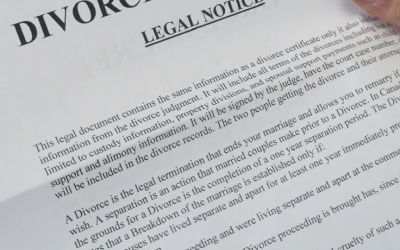Sharia Marriage Rules in the UAE: Everything You Need to Know for 2025
Table of Contents ▼
Will you be ready for the new Sharia marriage rules in 2025? Don’t risk missing out on important updates.
As 2025 approaches, changes to the UAE’s Sharia marriage rules could have a significant impact on your wedding plans. If you’re preparing to marry in the UAE, it’s crucial to understand these updates to ensure that your marriage is legally and religiously valid. From documentation to the marriage ceremony itself, the rules you follow can shape your entire experience.
In this blog, we’ll walk you through everything you need to know about the latest Sharia marriage rules, what’s changed in 2025, and how to prepare for a smooth, stress-free marriage process.
Understanding Sharia Marriage Rules in the UAE
The UAE follows a dual legal system, with Sharia marriage rules governing personal status matters such as marriage, divorce, and inheritance for Muslims. These rules ensure that marriages are in accordance with Islamic law, but also provide a legal framework that ensures the union is recognized under UAE law.
When you marry under Sharia marriage rules, you’re entering into both a religious and legal contract. This marriage is recognized not only by the Islamic community but also by the UAE government, providing both spiritual and legal protections.
Key Requirements for Sharia Marriage in 2025
Essential Documents You’ll Need
Marriage under Sharia marriage rules requires specific documentation to ensure that the marriage is legally valid. Couples must provide the following documents based on their residency status:
For UAE Nationals:
- Emirates ID
- Family Book (Khulasat al-Qaid)
- Medical fitness certificate
- Pre-marital screening certificate
- No-objection certificate from the family court (if previously married)
For Expat Muslims:
- Valid passport with UAE residence visa
- Attested birth certificate
- Certificate of no impediment to marriage from home country
- Medical fitness certificate
- Pre-marital counseling certificate
- Salary certificate or employment letter
Age and Consent Requirements
According to Sharia marriage rules in the UAE, both parties must be at least 18 years old to marry legally. However, exceptions can be made with court approval for special cases, particularly when the parties involved are younger but meet the necessary criteria.
Mental capacity and free consent are mandatory requirements, ensuring that both parties fully understand and agree to the terms of the marriage. Additionally, parental consent is typically required for first-time brides under 25, emphasizing the importance of family involvement.
Recent Updates to UAE Sharia Marriage Laws
2025 Legislative Changes
In 2025, the UAE made several updates to Sharia marriage rules that make the process more streamlined, accessible, and aligned with modern practices, while still adhering to Islamic principles. Some of the key changes include:
- Expanded pre-marital counseling: Counseling now covers not just emotional readiness but also practical matters like financial planning, conflict resolution, and family planning.
- Simplified documentation: Certain documents and steps in the marriage process have been simplified, making it easier for couples to navigate the bureaucracy.
- Better protection for spouses: New legal protections for both spouses, particularly related to divorce, inheritance, and other key marital issues.
These updates ensure that couples are better prepared for marriage and reduce the risk of complications later on.
Digital Integration and Processing
To enhance the marriage process, the UAE has adopted digital systems for document submission, appointment booking, and tracking applications. These online systems ensure that couples can handle many aspects of their marriage remotely, improving efficiency and reducing delays. The digital platforms also help couples stay updated on the status of their marriage application.
The Marriage Contract Process
Nikah Ceremony Requirements
The Nikah ceremony is the Islamic marriage contract under Sharia law. It must be conducted by an authorized Islamic marriage officer (Ma’zoun), and the ceremony requires the following:
- Presence of two male witnesses or one male and two female witnesses
- Recitation of marriage contract terms in Arabic
- Agreement on the mahr (dower) amount
- Signatures from both parties and the witnesses
The mahr represents the financial commitment from the husband to the wife and is a fundamental part of the marriage contract. The mahr can be immediate or deferred, and it must be agreed upon by both parties before the ceremony.
Court Registration
After the Nikah ceremony, the marriage must be registered with the local Sharia court within 30 days. This step is crucial to make the marriage legally valid under UAE law.
Once the court verifies your documents and confirms the details of the ceremony, they will issue an official marriage certificate. This certificate is needed for a variety of legal matters, including visa applications, property transactions, and child registration.
Financial Obligations and Rights
Understanding Mahr and Financial Responsibilities
In Sharia marriage rules, mahr is an essential financial commitment from the husband to the wife. It serves as a symbol of commitment and financial security for the wife. Mahr can be paid immediately, deferred, or structured in combination, depending on the couple’s agreement.
In addition to the mahr, the husband is responsible for nafaqah (maintenance), which includes providing food, housing, and medical care. These responsibilities are enforceable by law under the UAE’s legal system.
Property and Asset Considerations
Under Sharia marriage rules, property ownership is separate between spouses. Each individual retains ownership of assets they brought into the marriage or acquired individually during the marriage. However, gifts between spouses and jointly acquired property are subject to specific Islamic guidelines.
Understanding these property rules before marriage is essential to prevent disputes later on and ensure that both parties are aware of their rights and obligations.
Rights and Obligations Under UAE Sharia Marriage Rules
Spousal Rights and Responsibilities
Marriage under Sharia marriage rules creates mutual rights and obligations for both spouses. The husband is financially responsible for maintaining the wife, which includes providing maintenance (nafaqah), housing, and medical care. The wife is entitled to respectful treatment, financial support, and autonomy.
Both spouses also share the responsibility for raising children, making family decisions, and maintaining the marital relationship. The UAE courts ensure these rights are respected and intervene when necessary to resolve conflicts or disputes.
Child Custody and Parental Rights
Child custody in the UAE follows Sharia marriage rules, with decisions made based on the best interests of the child. Recent updates emphasize factors like stability, emotional well-being, and educational opportunities when determining custody.
The UAE legal system prioritizes the welfare of children, ensuring that custody arrangements are fair and just for all parties involved.
Special Circumstances and Considerations
Interfaith Marriage Considerations
Sharia marriage rules in the UAE allow Muslim men to marry women from other Abrahamic faiths (Jews and Christians), but these marriages require additional documentation and must follow specific procedures for legal recognition.
For Muslim women, marriage to a non-Muslim man is only permitted if the husband converts to Islam before the marriage can proceed under Sharia law.
Second Marriage Procedures
Polygamy is allowed under Islamic law in the UAE, but the husband must meet strict conditions. He must prove his financial capability and ability to treat all wives equally. The UAE courts carefully review second marriage applications to ensure compliance with these conditions.
Practical Steps for Your Sharia Marriage
Timeline and Planning
Start planning your Sharia marriage at least 2-3 months in advance. This allows sufficient time to gather documents, undergo medical examinations, and book necessary appointments with the court.
Choosing the Right Ma’zoun
Choose a Ma’zoun who has experience with your specific circumstances. Their understanding of Sharia marriage rules and familiarity with the process will ensure the ceremony is performed smoothly.
Common Challenges and Solutions
Document Attestation Issues
Attesting documents, particularly those from abroad, can be a complicated and time-consuming process. Work with trusted attestation services to ensure that all your documents are accepted by the relevant authorities.
Language Barriers
Since all official procedures are conducted in Arabic, it’s essential to arrange for certified translation services or bring an Arabic-speaking friend to help during appointments.
Conclusion
Understanding the Sharia marriage rules in the UAE is crucial for a successful, legally recognized marriage. With the 2025 updates, the process is streamlined and more accessible for both locals and expats. Stay informed, prepared, and well-supported to ensure that your marriage journey is smooth, fulfilling, and legally secure.
For expert advice and professional guidance, visit Easy Wedding today and start your Sharia marriage process with confidence.


